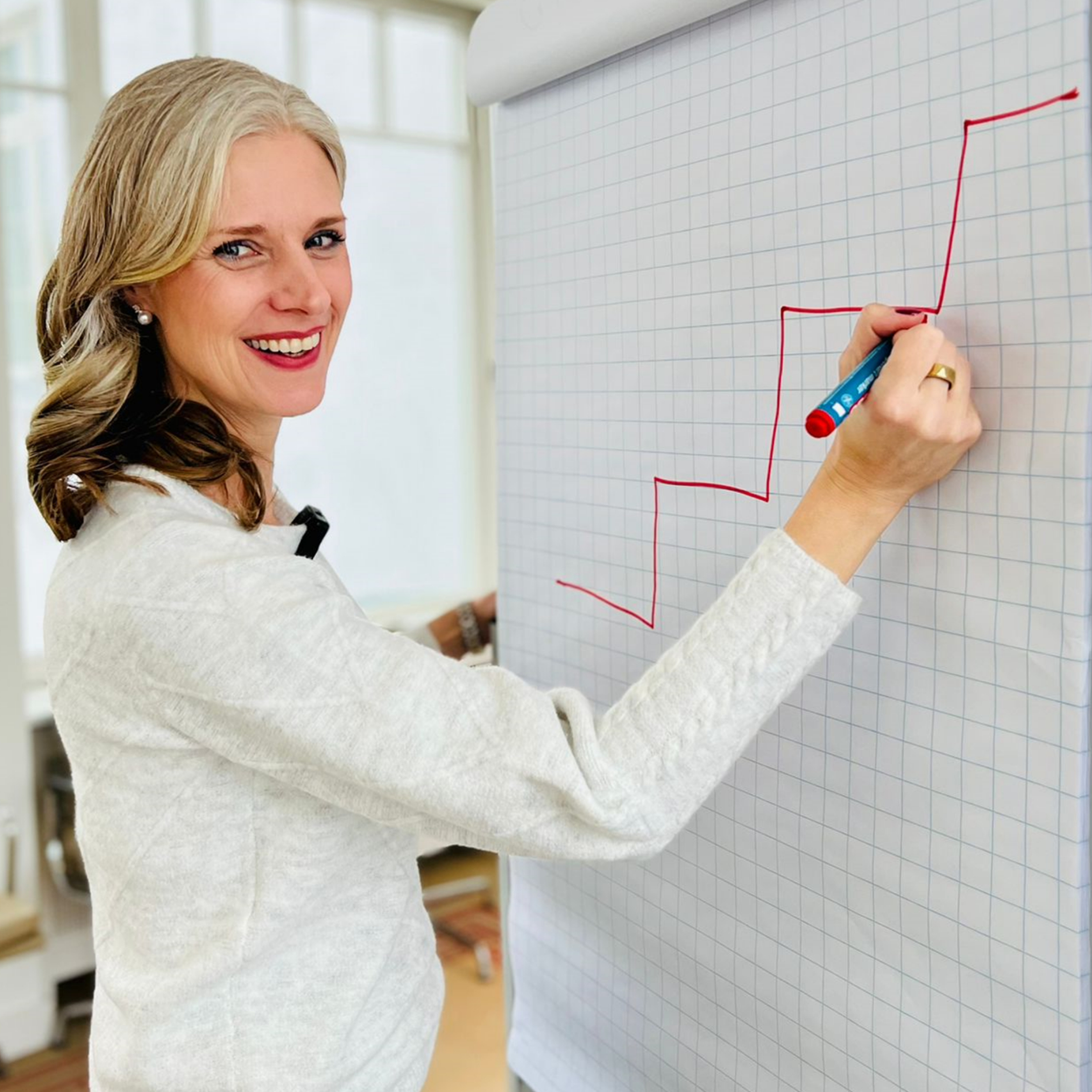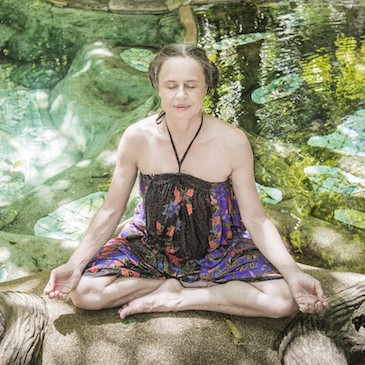~ Online-Programm für Coaches, Experten, Berater, die ihr Herzensbusiness aufblühen lassen wollen. ~
Willkommen bei "The Spark"
Sehnst du dich danach, dein Herzensbusiness auf das nächste Level zu bringen? Stehst du dir ab und zu selber im Weg und leidest an Aufschieberitis? Möchtest du endlich ein erfolgreiches Herzensbusiness, was dir Spaß macht, und dir erlaubt, im Flow zu sein und deine Träum zu verwirklichen?
Dann bist du hier genau richtig!
"The Spark" ist kein gewöhnliches Online-Programm. Es ist eine Reise zu deiner inneren Flamme, zu deiner magischen Kraft, für dein Business und dein Leben. Ein Funken, der zu einer Flamme wird, welche in dir die Begeisterung, Echtheit, Freude und Kraft in Bewegung setzt und dir deine Träume ermöglicht.
Bist du bereit, in nur 6 Tagen, deine Einstellung zu Business und Verkaufen neu zu definieren und dich auf Erfolg auszurichten?
Teilnehmer erleben in meinen Räumen Magie und spüren ihren Spark:
LIVE vom 23. April - 28. April täglich von 10:30 bis ca. 12:00 Uhr.
Eine Aufzeichnung aller Sessions steht dir für ein ganzes Jahr zur Verfügung.
You missed out!
Was erwartet dich bei "The Spark"?
Entfache dein Feuer
Tauche ein in die Essenz deines Herzensbusiness und finde heraus, was dich wirklich antreibt. Lass die Glut deiner Leidenschaft entflammen und spüre, wie deine Vision so lebendig wird, dass du umsetzen musst. Dies ist der Moment, in dem du erkennst, dass du für mehr geschaffen bist, als du dir jemals vorgestellt hast.
Authentisch und mit Liebe verkaufen
Lerne Strategien und Techniken, um deine Dienstleistungen authentisch und überzeugend zu verkaufen, ohne dabei deine Werte zu verleugnen und immer mit deinem Herzen verbunden zu sein.
Entdecke, wie du deine Einzigartigkeit in jeden Verkauf einfließen lassen kannst, ohne dich zu verdrehen, zu verbiegen oder anzubiedern. Verkaufen darf leicht sein und Spaß machen.
Leichtigkeit und Freude
Stelle dir vor, wie es wäre, den Verkaufsprozess mit Leichtigkeit und Freude zu gestalten, mit einem Lächeln auf den Lippen und Freude im Herzen. Denn wenn du mit Freude und Leichtigkeit verkaufst, strahlt das auf deine Kunden ab und schafft eine besondere Aura, die nicht nur für Umsatz sorgt, sondern auch wundervolle Herz-zu-Herz Beziehungen aufbaut mit deinen Soulmate Kunden.
Praktische Übungen
Gemeinsam werden wir praktische Übungen durchführen, damit du das Gelernte direkt in die Tat umsetzen kannst. Es geht nicht nur darum, zu hören und zu verstehen, sondern auch zu tun und zu erleben. Denn nur so kannst du Klarheit für dich gewinnen und dich auf Erfolg ausrichten und diesen auch spüren.
Gemeinschaft und Austausch
In unserer Community findest du nicht nur Inspiration und Unterstützung, sondern auch eine Plattform, um dich auszudrücken und zu wachsen. Hier wirst du ermutigt, dich zu zeigen und dich mit Gleichgesinnten zu verbinden.
Deine Mentorin, Christine Schlonski

Christine Schlonski, zeigt dir die Freude und Freiheit authentisch zu verkaufen.
Sie ist Expertin für Vertriebs-Mindset und Strategie.
Mit Ihrem Motto Herz Verkauft! unterstützt sie Coaches, Berater, Trainer, und Experten, oder die, die es werden wollen, mit Freude und Leichtigkeit zu verkaufen, damit sie sich das Herzensbusiness ihrer Träume aufbauen können.
Mit ihren Kongressen, ihrem Heart Sells! Podcast, Workshops und Programmen hat sie schon Tausende von Unternehmern weltweit unterstützt, sich ein Herzensbusiness auf- und auszubauen, das Verkaufen neu für sich zu definieren und sich finanziell ganz neu aufzustellen, um ihre Freiheit, Selbstbestimmung und den Lifestyle ihrer Träume leben zu können.
Melde dich zu The Spark an
"Ich bin in der Aufbauphase meines Herzensbusiness. Meine größte Herausforderung ist es, bei all den neuen Erfahrungen und vielen Möglichkeiten den Fokus zu halten. Ich war bei Christines letzten Workshop mit VIP-Option schon dabei, was mich absolut beflügelt und mir einen riesigen Vorwärtsschub gegeben hat.
Denn Christine brennt für das Wachstum und den Erfolg ihrer "Soulmates".
Sie verkörpert, was sie macht und ist dadurch absolut authentisch. Christine bringt einen mit viel Klarheit, Herz und einem beeindruckenden Wissensschatz zum nächsten Schritt.
Das Faszinierende ist, dass sie jede:n Einzelne:n genau da abholt, wo sie/er steht und mit ihrer Energie ansteckt, was das innere Feuer zum Buschfeuer macht. Christine inspiriert nicht nur auf der mentalen, sondern auch auf der emotionalen Ebene. Dadurch löst sie in der Woche eine regelrechte Transformation bei dir aus, die über die Veranstaltung hinaus fortwirkt. Mit der VIP-Option tauchst du noch tiefer ein und profitierst von dem direkten Kontakt zu Christine und ihren Antworten - sowohl auf deine persönlichen Fragen, als auch die Fragen der anderen Teilnehmer:innen. Manchmal ist es die Frage von jemand anders, die dir plötzlich ganz neue Horizonte eröffnet."
Anna-Lena Busson - Mentorin für Mütter mit Migräne
"Ich habe mir das 1. Mal ein VIP-Ticket für einen Workshop gegönnt und kann nur sagen: Richtige Entscheidung. In dem VIP-Call von Christine habe ich die für mich wertvollen Impulse und Eye-Opener bekommen, die für mich jetzt dran waren. Christine geht auf jeden einzelnen VIP ein und gibt gezieltes Coaching für die individuellen Themen - genau da, wo Frau jetzt gerade steht. Ihr Coaching ist wirklich mit Herz. Empfehlenswert!
Im VIP-Raum bekommt tatsächlich jeder, der möchte, Raum und wertvolle Hilfestellung für sein Thema, wo er/sie in dem Moment steht.
Am besten gefallen hat mir die gute Energie und klare aber dennoch flexible Tagesinhalte.
Valeska Otto
"Bei mir gab es über all die Jahre meiner Selbstständigkeit finanzielle Unklarheiten, beispielsweise: Wie komme ich an gut zahlende Kundinnen? Wieviel darf ich für meine Expertise überhaupt verlangen? Bei Christines Workshop hat mich am meisten fasziniert, wie einfach manche Fragen sich beantworten lassen. Christine gibt Basis Antworten, die jede Unternehmerin, jeder Unternehmer verinnerlichen sollte. Als allererstes! Und das Beste: Diese Antworten fühlen sich gut und stimmig an. In der VIP-Lounge ist es einfach fantastisch, Christine direkt Fragen zu stellen. Sie hat auf alles Antworten. Sehr beeindruckend. Ich habe viel gelernt, indem ich den anderen zuhörte. Ich habe Christines Ruhe und Herzenswärme wohlig gespürt, die mir vorher noch nie begegnet ist, wenn ich etwas zum Thema Finanzen oder Verkaufen gebucht hatte. Sehr beeindruckend. Am besten hat mir Christines Ausstrahlung gefallen. Diese Souveränität und Glaubwürdigkeit. Wahnsinn!"
Karin Lochner - Expertin für Yoga, Beckenboden und Fitness
LIVE vom 23. April - 28. April 10:30 - ca. 12:30 Uhr täglich,
danach erhältst du die Aufzeichnung für ganze 12 Monate und
kannst The Spark immer wieder durchlaufen
Invest: 497,-
netto
(Zahlungspläne auf dem Bestellformular)
Mit diesem Ticket bekommst du:



 Ja, ich will dabei sein!
Ja, ich will dabei sein!







